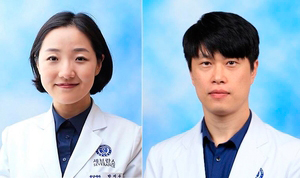Genetic Variant that Increases the Risk of Breast and Ovarian Cancer in Korean Population Discovered
Yonsei researchers have identified a novel Korean-specific mutation that is expected to contribute in detecting and preventing relevant cancers.
A genetic cancer clinic research team, including Professor Ji Soo Park from the Cancer Prevention Center at the Yonsei Cancer Center and Professor Seung Tae Lee from the Department of Laboratory Medicine at the Severance Hospital, has discovered that the risk of breast cancer and ovarian cancer increases in Koreans with c.5339T>C p.Leu1780Pro variant (hereinafter referred to as L1780P variant).

BRCA1 , 2 genetic mutation is a major cause of hereditary breast and ovarian cancer syndrome. In comparison to the general population, the mutation carrier is known to be at a higher risk of breast cancer by 8~10 times, and ovarian cancer by 20~40 times.
As such, it is an important factor in cancer treatment and prevention. But 15~30% of the actual test results shows the variant of unknown significance (VUS), which requires sufficient clinical data and systematic analysis in addition to laboratory research for interpretation. Until now, the test has used foreign data, lending to difficulties in analyzing for the Korean population.
The research team analyzed the genetic test results of 745 Korean patients with breast/ovarian cancer and a control group of 1,314 Koreans, as according to the American College of Medical Genetics and Genomics [ACMG] standards and guidelines, and discovered Korean-specific mutations.
With the control group of existing Western population data, these variations have been either less significant or overinflated. Particularly, the mutation called L1780P has been Korean-specific, and classified as a “variant of unknown significance” elsewhere. MYRIAD Genetics Inc. has noted the findings of the research team and reclassified it as a “likely pathogenic variant.” L1780P variant was found in 1.48% of Korean patients suspected to have hereditary breast cancer or ovarian cancer. Especially for breast cancer, 73.6% of Koreans with L1780P variant are likely to be diagnosed with breast cancer by 40 years of age.
The study “Identification of a Novel BRCA1 Pathogenic Mutation in Korean Patients Following Reclassification of BRCA1 and BRCA2 Variants According to the ACMG Standards and Guidelines Using Relevant Ethnic Controls” was published on the 2017 Issue 49 (4) of the Cancer Research and Treatment.
Recommended Articles
Professor Hyuk-Jae Chang
Professor Sung-Joo Hwang